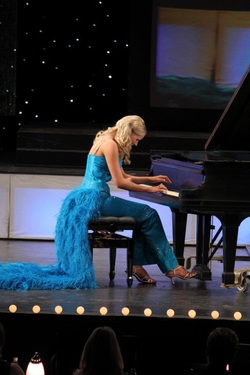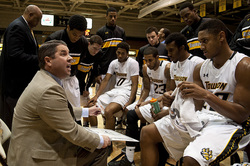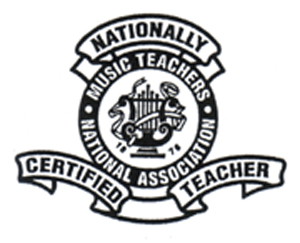 Alyssa H. won the talent, interview, and "Be Your Best Self" categories at the Distinguished Young Women of Virginia state finals. She performed Elizabeth Borowsky's composition, "Northern Lights" and received over $2000 in scholarships!
0 Comments
 Elizabeth Borowsky met with Towson University Men's Basketball Coach Pat Skerry to talk about skill training, mental preparation, discipline, and other parallels between basketball and music. How do your players improve their skills as individuals and as a team? We videotape practices and games. Players watch the videos and critique themselves and each other. Although we give them feedback during practice, often they are not fully aware of what they are (or are not) actually doing. They think that they have already made the improvement that we asked of them. But videos don't lie and seeing is believing, so this is a very important part of their growth and development. In order to get ready for performances in front of an audience we play in front of family and friends. How do your players get ready for game day? We do try to simulate game situations in practice drills, but there really is no substitute for game experience. The more you do it, the better you get. What happens if a player makes a mistake during a game? Mistakes and missed shots are normal and okay. But I will go bananas if the player doesn't immediately recover and jump back into the game. If they focus on the error they are more likely to miss another opportunity. Similarly with success. They can celebrate after the game. Regardless of what goes right or wrong, the moment it's done it's past and they need to be thinking about the next play. How is your team's daily practice structured? We follow the same practice routine every day. It starts with stretching, then we move on to ball handling and skill work (practicing the elements of the game), free throws, and game-play. We finish by watching a video of the practice and analyzing what needs to be improved. How much (and what kind of) individual practice do you expect from your players? In addition to team practice, players need to spend time in the weight room. They need to make healthy eating choices. And they need to practice their skills as an individual player. I ask them to put in 1000 free throws per day. If they build consistent results in practice, there is much more of a chance that will show in the game. In addition, I expect an attitude of readiness to learn and work hard both on and off the court. Players are expected to be diligent students at the university. How do you instill the desire to work hard? It's important that players honor the process of growth. Attention to detail is very important. They have to be willing to take and implement critique. Dedication must be consistent and all-round, in every aspect of training as well as their studies. If we have a 1pm practice, they need to be ready and waiting at 12:45. I treat all players fairly but may motivate them differently. It's my job to push them to do more than they want to. I coach my strongest players the hardest. "As much time as kids spend playing video games," Hopla said, "if they spent that time playing the actual game, they'd be on the video game." Though the numbers disagree, Hopla insists he is nothing special. He's devoted his career toward showing players of all levels that his remarkable gift isn't a gift at all--it's a skill that anyone can learn. "If you want to be the greatest shooter in the world, there are two things you have to do," Hopla said. "Number one is shoot the ball correctly with correct shooting form. The second part is why nobody wants to be the greatest anymore: You have to shoot it more times than anybody else the correct way." Consider the personal records he's constantly striving to beat, records he says "keep me motivated."
"If someone misses 15 out of 20 shots from a spot, a lot of guys don't want to go back to that spot. The great ones say 'Hey coach, I'm not leaving this spot until Imake 15 out of 20.'" That kind of dedication often is the difference between an OK shooter and a great shooter. Even if your shot feels comfortable, it might not be correct. You need a willingness to sacrifice short-term comfort for long-term benefits. http://youth.usab.com/practice-time/shooting/The-Man-Who-Doesnt-Miss-Shots.htm Tips for success:
|
AboutElizabeth Borowsky is a pianist, teacher, and composer. She is a Nationally Certified Teacher of Music in Piano (Music Teachers National Association). SubscribeCategories
All
Archives
May 2023
|
Location |
|



 RSS Feed
RSS Feed